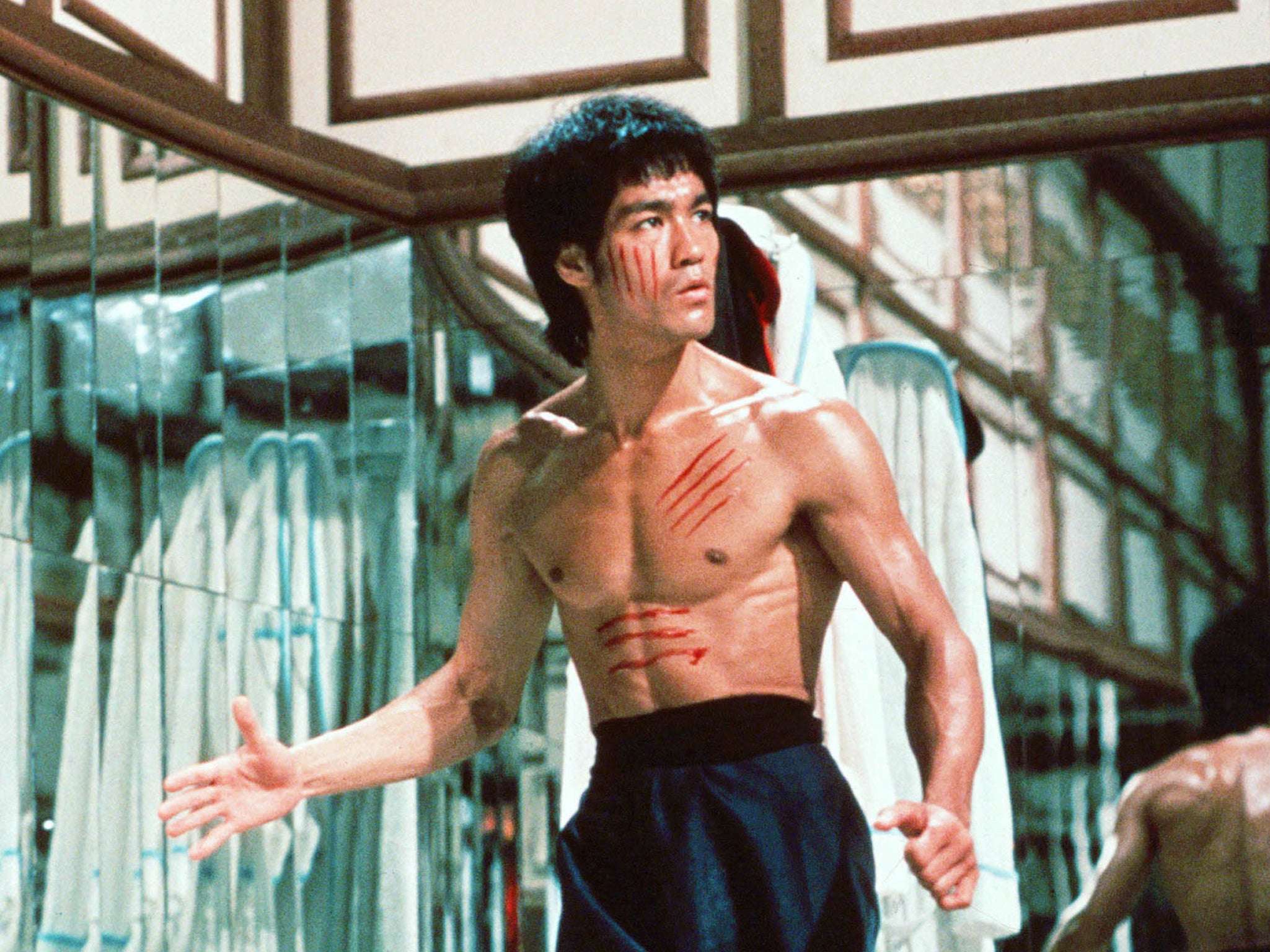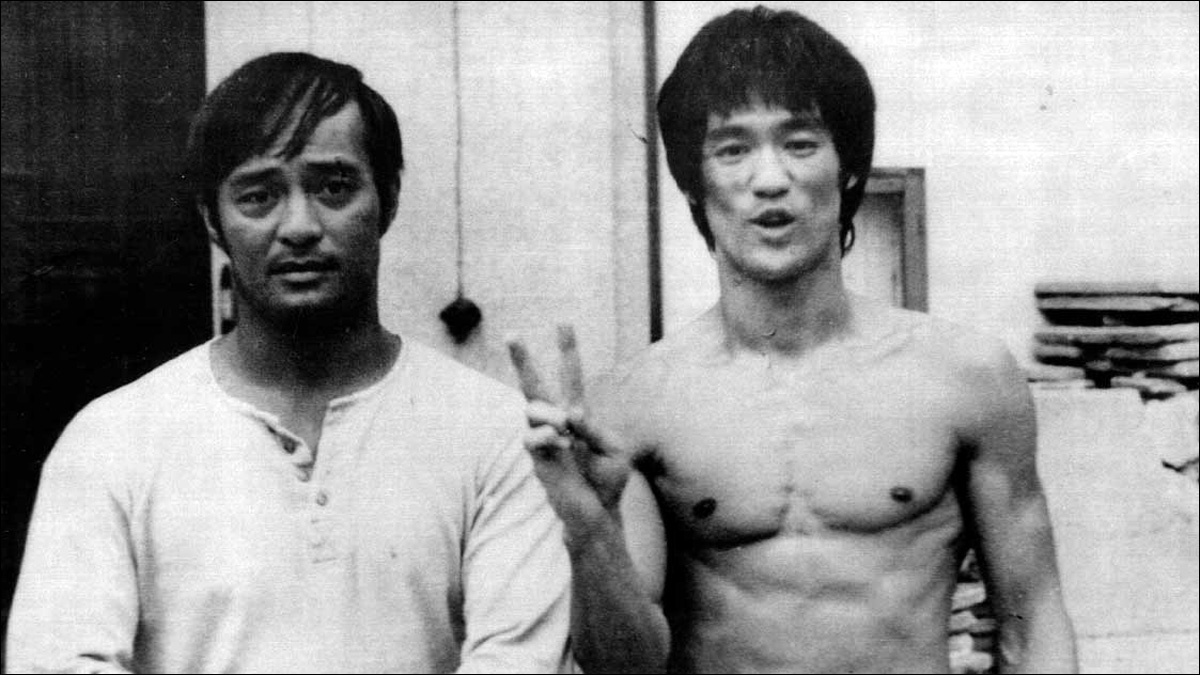Bruce Lee: The Martial Arts Icon Who Transcended Boundaries
In the annals of martial arts history, few names resonate with as much reverence and admiration as Bruce Lee. Renowned for his unparalleled skill, philosophical insights, and charismatic persona, Lee remains an enduring symbol of excellence and innovation in the world of martial arts and beyond. From his early days as a scrappy fighter in the streets of Hong Kong to his iconic status as a global cultural icon, Lee's journey is a testament to the power of passion, perseverance, and the relentless pursuit of mastery. Born on November 27, 1940, in San Francisco, California, Bruce Lee was raised in Hong Kong, where he was introduced to the world of martial arts at a young age. Under the guidance of his father, a renowned Cantonese opera singer, Lee began training in the traditional Chinese martial art of Wing Chun, laying the foundation for his future success as a martial artist and actor.
Born on November 27, 1940, in San Francisco, California, Bruce Lee was raised in Hong Kong, where he was introduced to the world of martial arts at a young age. Under the guidance of his father, a renowned Cantonese opera singer, Lee began training in the traditional Chinese martial art of Wing Chun, laying the foundation for his future success as a martial artist and actor.
As a teenager, Lee's passion for martial arts grew, leading him to explore various disciplines and training methods in his quest for self-improvement. He immersed himself in the study of kung fu, boxing, fencing, and philosophy, drawing inspiration from a diverse range of sources and incorporating elements of each into his own unique fighting style.
Lee's approach to martial arts was characterized by a relentless pursuit of efficiency and effectiveness. He believed in discarding the unnecessary and focusing on what worked best in real-life combat situations. This philosophy, which he termed Jeet Kune Do (The Way of the Intercepting Fist), emphasized simplicity, directness, and adaptability, making it a highly practical and versatile system of self-defense. In addition to his prowess as a martial artist, Bruce Lee was also a charismatic and influential figure in the world of film and entertainment. He burst onto the Hollywood scene in the 1960s, breaking barriers and defying stereotypes as one of the first Asian actors to achieve mainstream success in Western cinema. With his electrifying screen presence, dynamic fight choreography, and magnetic charisma, Lee captivated audiences and inspired a generation of fans around the world.
In addition to his prowess as a martial artist, Bruce Lee was also a charismatic and influential figure in the world of film and entertainment. He burst onto the Hollywood scene in the 1960s, breaking barriers and defying stereotypes as one of the first Asian actors to achieve mainstream success in Western cinema. With his electrifying screen presence, dynamic fight choreography, and magnetic charisma, Lee captivated audiences and inspired a generation of fans around the world.
Lee's most iconic role came in the form of "Enter the Dragon," a groundbreaking martial arts film that catapulted him to international stardom. Released in 1973, "Enter the Dragon" showcased Lee's unparalleled skills as a martial artist and established him as a bona fide action star. The film's success not only cemented Lee's status as a cultural icon but also helped to popularize martial arts cinema in the West, paving the way for future generations of martial arts actors and filmmakers. Beyond his contributions to cinema, Bruce Lee was also a prolific writer, philosopher, and teacher, whose ideas continue to resonate with practitioners of martial arts and seekers of self-improvement worldwide. His writings on martial arts, philosophy, and personal development, collected in books such as "Tao of Jeet Kune Do" and "Bruce Lee: Wisdom for the Way," offer timeless wisdom and practical guidance for living a fulfilling and purposeful life.
Beyond his contributions to cinema, Bruce Lee was also a prolific writer, philosopher, and teacher, whose ideas continue to resonate with practitioners of martial arts and seekers of self-improvement worldwide. His writings on martial arts, philosophy, and personal development, collected in books such as "Tao of Jeet Kune Do" and "Bruce Lee: Wisdom for the Way," offer timeless wisdom and practical guidance for living a fulfilling and purposeful life.
Tragically, Bruce Lee's life was cut short on July 20, 1973, at the age of 32, just weeks before the release of "Enter the Dragon." His sudden and untimely death sent shockwaves around the world, leaving millions of fans mourning the loss of a beloved icon. Yet, despite his passing, Lee's legacy endures, as powerful and influential as ever. In the decades since his death, Bruce Lee's impact on popular culture and the martial arts world has only grown stronger. His films continue to be celebrated and studied by fans and scholars alike, while his teachings and philosophy remain as relevant and inspiring as ever. Lee's legacy serves as a reminder of the power of passion, perseverance, and the pursuit of excellence, inspiring millions to follow in his footsteps and strive for greatness in their own lives.
In the decades since his death, Bruce Lee's impact on popular culture and the martial arts world has only grown stronger. His films continue to be celebrated and studied by fans and scholars alike, while his teachings and philosophy remain as relevant and inspiring as ever. Lee's legacy serves as a reminder of the power of passion, perseverance, and the pursuit of excellence, inspiring millions to follow in his footsteps and strive for greatness in their own lives.
As the world continues to grapple with the legacy of Bruce Lee, one thing is clear: his influence transcends boundaries, bridging cultures, and inspiring generations to come. Whether as a martial artist, actor, philosopher, or cultural icon, Bruce Lee's legacy will forever be etched in the hearts and minds of those who were touched by his extraordinary life and indomitable spirit.
Bruce Lee's impact extends far beyond the realm of martial arts and cinema. His philosophy of self-expression, personal growth, and transcending limitations has resonated with individuals from all walks of life, inspiring them to pursue their passions with courage and conviction. Lee's teachings emphasize the importance of embracing one's uniqueness, cultivating inner strength, and living authentically in pursuit of one's goals and aspirations.
One of the key tenets of Bruce Lee's philosophy is his emphasis on adaptability and fluidity. He believed in being flexible and open-minded, willing to adapt to changing circumstances and evolve with the flow of life. This mindset, rooted in the principles of Jeet Kune Do, encourages practitioners to embrace change as an opportunity for growth and self-discovery, rather than as a source of fear or resistance.
Lee's philosophy also emphasizes the importance of self-awareness and self-mastery. He believed in the power of introspection and self-reflection as tools for personal growth and transformation. By understanding oneself fully – one's strengths, weaknesses, desires, and fears – individuals can unlock their true potential and achieve greater levels of success and fulfillment in life.
Central to Bruce Lee's philosophy is the concept of "being like water." He famously said, "Empty your mind, be formless, shapeless – like water. Now you put water into a cup, it becomes the cup; you put water into a bottle, it becomes the bottle; you put it in a teapot, it becomes the teapot." This metaphor underscores the importance of adaptability, flexibility, and fluidity in navigating life's challenges and obstacles. In addition to his philosophical teachings, Bruce Lee was also a proponent of physical fitness and holistic well-being. He believed in the importance of cultivating a strong and resilient body as a foundation for mental and spiritual growth. Through his rigorous training regimen, which included martial arts, strength training, and cardiovascular exercise, Lee sought to optimize his physical capabilities and achieve peak performance in all areas of his life.
In addition to his philosophical teachings, Bruce Lee was also a proponent of physical fitness and holistic well-being. He believed in the importance of cultivating a strong and resilient body as a foundation for mental and spiritual growth. Through his rigorous training regimen, which included martial arts, strength training, and cardiovascular exercise, Lee sought to optimize his physical capabilities and achieve peak performance in all areas of his life.
Beyond his personal philosophy and approach to training, Bruce Lee's impact on popular culture and society at large cannot be overstated. He shattered stereotypes and broke down barriers, challenging prevailing notions of race, ethnicity, and masculinity. As one of the first Asian actors to achieve mainstream success in Hollywood, Lee paved the way for future generations of Asian American actors and filmmakers, while also inspiring people of all backgrounds to embrace diversity and celebrate their own unique identities. Bruce Lee's legacy continues to inspire and influence millions of people around the world. His timeless wisdom, indomitable spirit, and unwavering commitment to excellence serve as a beacon of hope and inspiration for those striving to overcome adversity, break through barriers, and achieve greatness in their own lives. As the world continues to grapple with the challenges of the modern age, Bruce Lee's teachings offer a guiding light, reminding us to embrace change, cultivate resilience, and live with purpose, passion, and integrity.
Bruce Lee's legacy continues to inspire and influence millions of people around the world. His timeless wisdom, indomitable spirit, and unwavering commitment to excellence serve as a beacon of hope and inspiration for those striving to overcome adversity, break through barriers, and achieve greatness in their own lives. As the world continues to grapple with the challenges of the modern age, Bruce Lee's teachings offer a guiding light, reminding us to embrace change, cultivate resilience, and live with purpose, passion, and integrity.

































